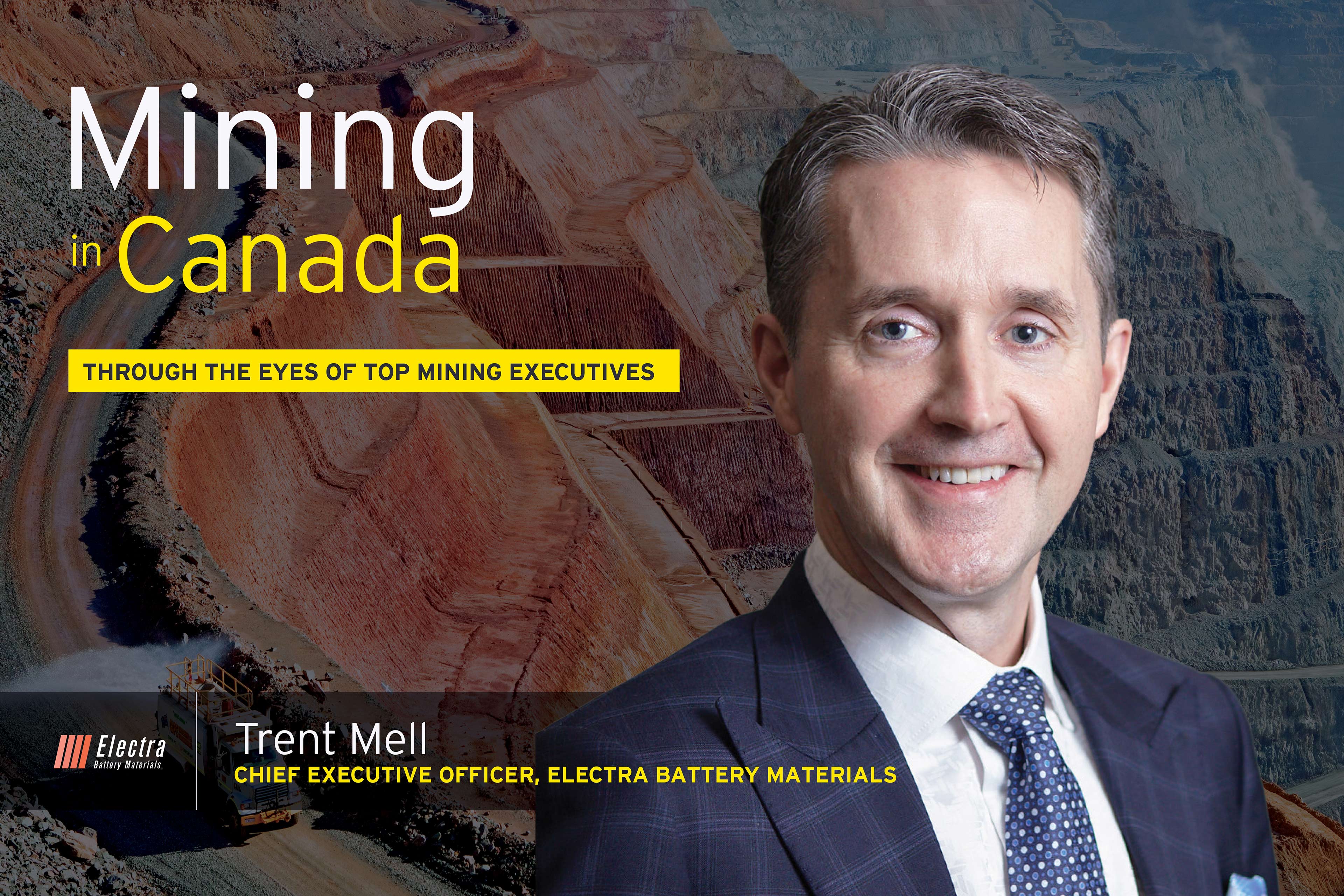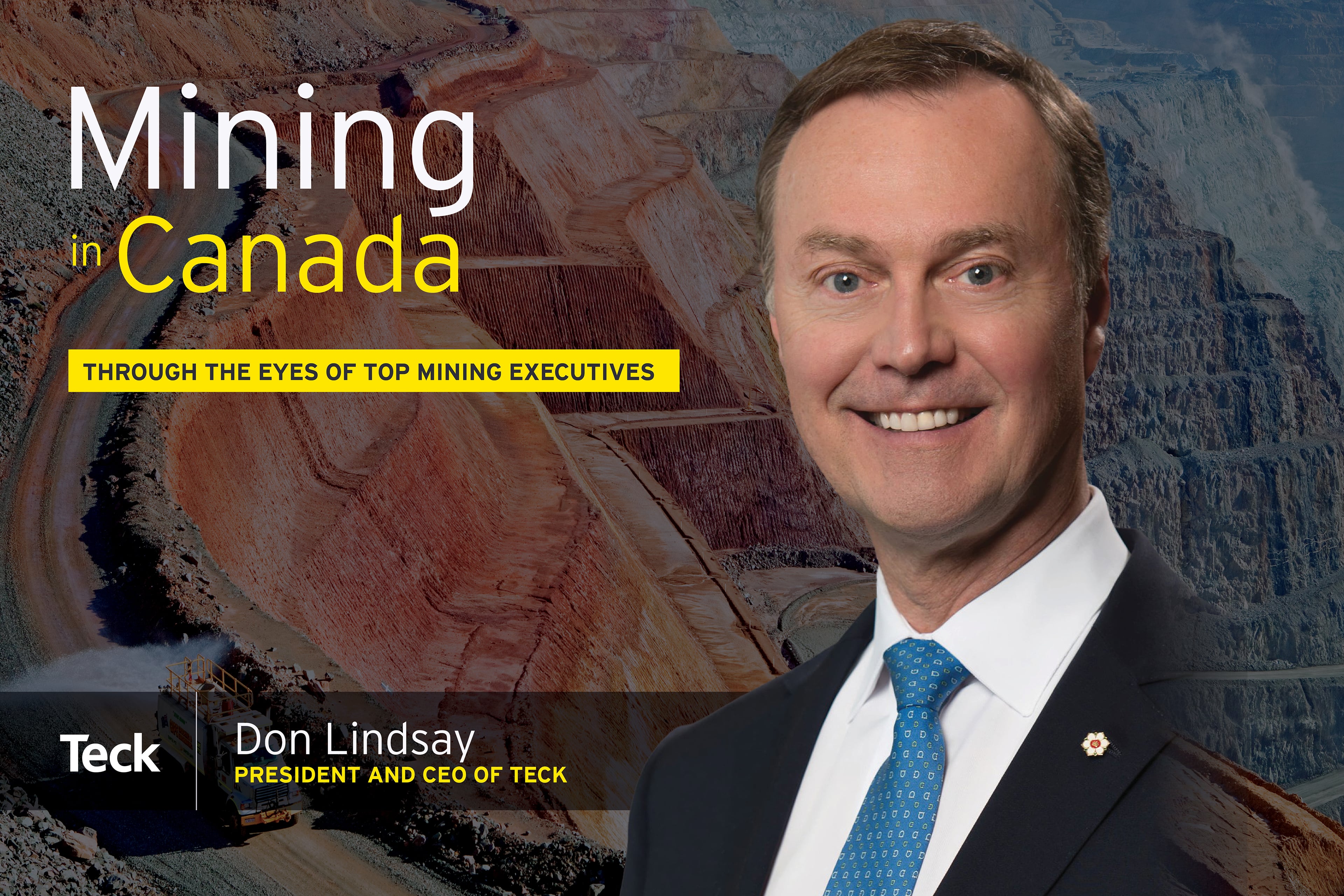At Eldorado, we’re capitalizing on technology in a number of different ways. One component is e-tagging in underground mines. Essentially, we’re able to track all our people and our equipment. This data provides us a lot of information to reduce safety risks. We can also operate our equipment remotely, running drills and scoops from the surface. That means during shift change or explosive gas clearing underground, we’re able to keep that mining cycle moving. Instead of stopping the work, we’re able to carry on and continue the work
In another example, we’re using technology at our open mine pit in Türkiye to actually monitor our drivers’ eyes. This allows us to monitor them for signs of fatigue. If the software picks up indications the driver is getting tired, the seat vibrates, giving the operator a sign to focus. Our dispatcher also receives a message and then can interact with the driver. This is really important. When you look at mining accidents, this large equipment can cause significant issues. We’ve leveraged technology to mitigate those risks in the last couple of years, and it’s doing a good job for us.
We’re also using technology to avoid collisions. This comes back to that tagging and tracking of people and equipment. Operators can see people or other equipment in proximity of the equipment, and it’s one more way they can avoid collisions.
Technology is also fueling our focus on the environment. We’re working on something called ECOMUD. As we investigate ore bodies, we drill holes into the earth to collect samples that tell us where the ore bodies are. This helps us collect information on metallurgy and processing. These drills obviously need water to cool the pits and to bring the cuttings away from the pits. The ECOMUD system takes the water that’s washing those finds out, keeping the drilling cool and productive. We’re partnering with local partners to recycle that water, minimize the amount of water we’re using as well as any environmental impacts incurred during the drilling process.
These are just a few of the ways technology is helping our business to run safer and better.
What broader implications do you see around the acceleration of technology in mining?
The technology has really made our mines safer. But it’s also changed the nature of the work. It’s much less physical in our mines today than when my grandfathers were underground miners in the past. I think this change really opens up the whole job market to a more diverse population. That’s going to be an important factor moving forward. We need the brightest men and women to deploy, improve and maintain these technologies. We’re in an environment now where really anybody can come into the mining industry and work. In many ways, I see that inclusion and diversity are also going to prosper in our industry as technology continues to roll out.
That’s a great segue to environmental, social and governance (ESG) priorities in mining. Can you give us your perspective around ESG?
When we look at the principles for ESG at the industry level, there’s the World Gold Council, responsible gold mining principles and the Mining Association of Canada’s Towards Sustainable Mining initiative. We have the international cyanide code, and we have the volunteer principles on security and human rights. At Eldorado, ESG is a critical part of our business and our values. We’ve signed on for all of those voluntary standards.
Another key ESG ingredient for our company has been to develop a sustainability integrated management system called SIMS. With SIMS, we connect all the commitments we’ve made within a system to ensure that our workforce, policies and operating procedures are in line with those commitments. The system helps us deliver on our promises to society.
When you look at our executive team and our board, we’re fully committed to ESG. We’ve demonstrated some pretty significant progress over the last number of years. And SIMS will continue to bode well for our company, keeping us aligned to our commitments. It helps us deliver in terms of a safe, inclusive workplace. It’s important for us to have engaged and prosperous communities.
We want to produce responsibly. We want to live healthy environments while we’re operating — and once we close our operations. So SIMS plays an important role in bolting all that together.
From a greenhouse gas emissions (GHG) perspective, we’ve got achievable targets to reduce our impacts on climate change. We are focused on decarbonization, but it’s one step at a time and we want to make sure we’ve got plans in place to get us to that ultimate destination. We’ve put in place what we believe is a stretch goal, but a practical one that we can deliver upon. I think that’s told the market that we are committed to carbon reduction and specific targets that we can be measured against.
Our board and our executive are very committed to ESG. Sustainability is a driver of success for our company.
At the macroeconomic level, the mining and metals industry has weathered many inflationary cycles. What kind of advice can you offer regarding how the industry — and gold in particular — can deal with inflationary pressures?
Well, the first thing I’d say is that we are seeing the inflationary pressures in the general market today. The war in Ukraine has really intensified global issues and for sure specifically in our business, we’ve seen volatility in electricity, fuel and reagents. I would also say that in our particular circumstance, there are mitigating factors helping us.
We sell our gold and our base metal by-products in US dollars for the most part. Even in the case of Türkiye, where we get Turkish lira, we convert to US dollars immediately. A lot of our costs are in local currency. In Greece and Türkiye, there’s not only been high inflation as a result of some of these global issues and country-specific issues, but we’ve seen pretty significant movement from the US dollar to those local currencies. Generally, that’s been a bit of an offset from a cost perspective. We don’t have any US operations, and a lot of our costs across our three jurisdictions are in other currencies experiencing favourable conversions to US dollars. That’s helped us a bit.
Like in any business, we’re doing everything we can through continuous improvement to make reductions in the things we can control. For the gold sector, obviously metal prices are key. As you said, mining is a cyclical business, and we designed our business essentially to withstand these tough markets.
Any closing thoughts or key takeaways you’d like to share?
I’m a mining engineer. I’ve been in this business for three decades. It’s been a fantastic career for me. I’ve been able to visit most corners of the planet and engage with diversified people all over the world. This has been a very rewarding career for me. I want young men and women to know that we need the best and brightest entering this industry.
Mining fundamentally underpins everything we do in the world. If it isn’t grown, it’s mined. Technologies, transportation systems, energy — all these things require mining. Our industry is evolving. We’re going to continue getting better at what we do, and I think that’s an important thing for society. Everything we’ve talked about today matters for society. I encourage people to consider mining as a career opportunity.





